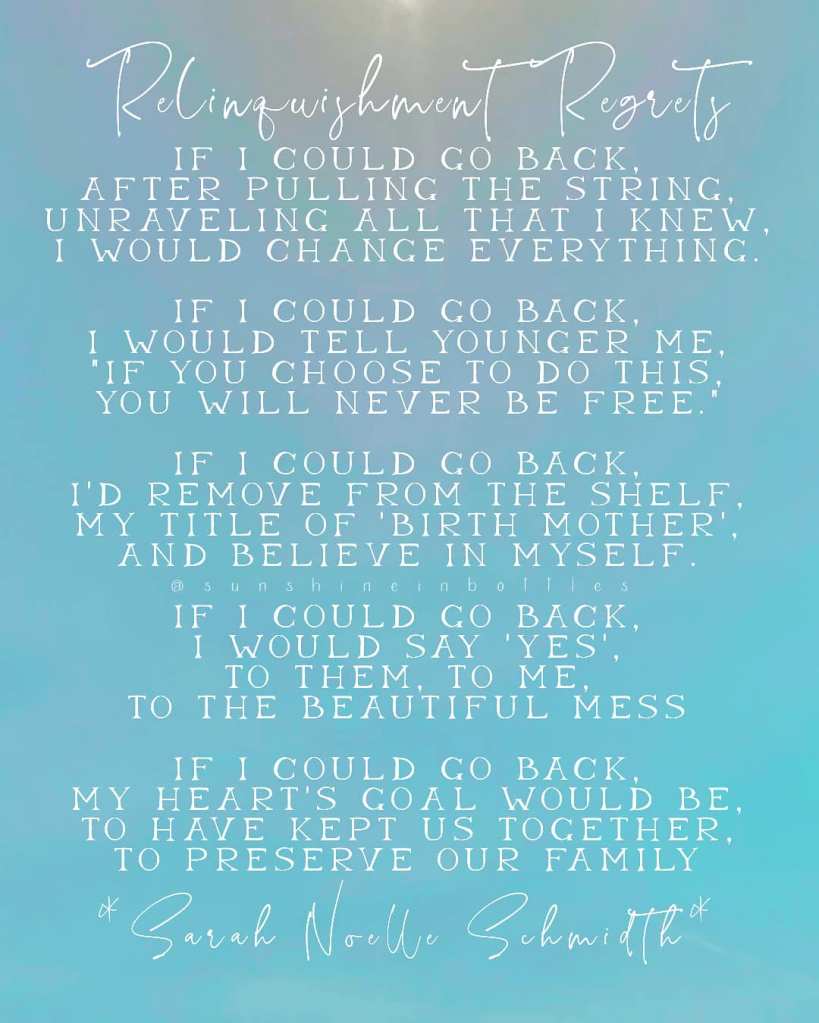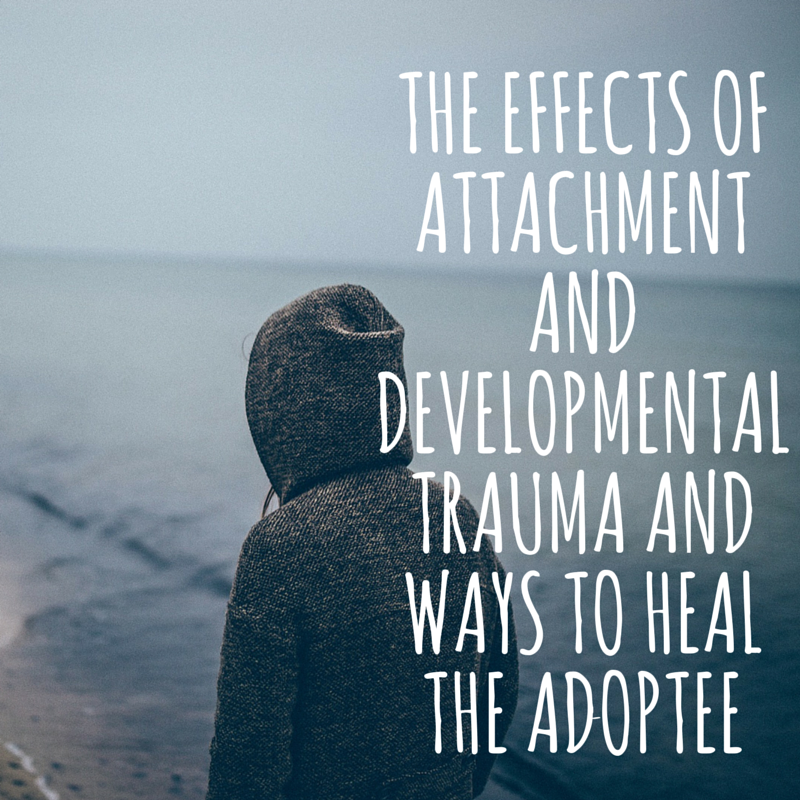
It’s a longish story, so I’ll try to summarize it. A woman with 2 biological sons was approached by a couple at church to adopt their grandchild. At first, she expected the biological mother to change her mind but it didn’t happen and she ended up with the baby girl. However, it was all a very open adoption until . . .
That little girl is now 9 years old. Her first mother has had another baby and has ceased all contact. She plans to never tell her new daughter that she gave up a previous baby for adoption. Her husband is supportive, even though he knew this other daughter existed before they got married. The grandparents and other extended family vehemently disagree with this decision and remain very much involved with the adoptive mother and this older daughter. However, the adopted daughter asks regularly about her biological mother and her “baby sister.” The rules were changed for us in the middle of the game. What can I do to prevent her from feeling abandoned, causing more psychological and emotional damage to her? The involvement from her biological mother’s extended family complicates things. It brings questions every time there is any interaction with them.
From an adoptee – There’s nothing you can do about the damage her first mother is doing to her. Don’t focus on it. Give your daughter all the love and support she deserves. At this point, speaking hard truths with grace about her mom and drawing boundaries to protect her will take wisdom. I’ve had to walk this road from 10 to now. I’m 40. My natural parents gave me up for adoption with some expectations that I did not meet. Sometimes, if I look at the cold hard facts, there is a sadness and anger that comes, but my adopted parents loved me. I am so thankful for that. It had made me strong enough to look at the hardness of life but also taught me mercy so that I don’t lash at people because of the hurt done to me. Truth and mercy. They should always go hand in hand.
From a trans-racial international adoptee – having lovely adoptive parents doesn’t necessarily mean there is no trauma. When we refer to as “adoption is a trauma”, we’re talking about the relinquishment (especially at birth), the removal from biological family (even with “open” adoptions) & the legal severing of all biological ties. You can be the most trauma-informed adoptive parent who centers the adoptee and the adoptee can still have trauma. For example, your daughter refers to the baby as her “baby sister” but legally speaking, they aren’t sisters. You should consider that to be trauma. You can’t prevent adoption trauma from happening, when the adoption has already taken place.
From a woman adopted by kin – relinquishment is trauma, even when done as carefully as possible. THIS is a whole other level of heartbreak. It makes me sad and angry for her, that she now has to face being completely abandoned by her mother… especially with the reason being that she now wants to lie to the younger baby and pretend the other daughter never existed. She’s doing a major disservice to them both. The young mother also has some trauma. Even if she pulled herself together and got on with her life, even if she says she’s moved on, even if she acts like a giant brat – in spite of all that – it was trauma for HER to give away her baby. She gives clues when she mentions not wanting the new baby to know. She is judging HERSELF for what she did. Whether she deserves that judgment or not, isn’t the point. The point is that we live in denial and continue to make more bad decisions, when we refuse to face the judgment we make against ourselves. She feels like a horrible person for giving away her child, but she isn’t allowing herself to acknowledge that feeling. It comes out in her fear of being judged by her new baby. She can’t stomach the idea of that. So she’s hiding her mistakes. The option of therapy was avoided and stigmatized by the people who raised me. I stuffed it all down and put on the good, grateful face. It all began bubbling up when I became a mother. Figuring out trauma as a new parent is FAR from ideal, but it often comes to the surface when we become parents. Go ahead and get help for the child long before that. Brace yourself. Her mother has fully abandoned her and is planning to pretend to have a happy, perfect family with a new baby. It’s a multi-layered loss. Not only is she losing her mother, she’s also losing the chance to know the new sibling. You are the mother figure in her life. The chances that you will catch the fall-out and flack from the onslaught of emotions is pretty high. Please prepare yourself to recognize that trauma responses are NOT misbehavior.
The adoptive mother says – I would rather her not have known about the baby had I saw this coming. But the kinship adoptee responds with the hard reality – I can understand why you say you’d rather she not know about the baby, since it’s causing additional pain. As mothers, we want to help them avoid big pains like this whenever possible. But I’d like to gently caution you against that thought as well. Her sibling is part of her truth. For right now, it is extremely painful to know about the baby… but not knowing would be the greater injustice. The people who raised me hid parts of my story from me. They thought they were doing the right thing, I guess because they thought I couldn’t handle knowing. Every time some new part of my story came out, it was a huge blow – not just because it was new information, but also because they’d kept it from me. It destroyed all of my confidence in them. They were still withholding my truths from me when I was in my 30s!
One last one from the child of an adoptee – Is it possible that her family coerced her into placing her first born up for adoption? How much contact did you have with your daughter’s mom before she went into labor? You said the grandparents approached you at church – of all places. It sounds like the kind of family that would pressure and talk her into something like that. My dad was adopted at birth, his mom was 13 (that is literally all we know). The first mother definitely has trauma, if that were the case. The adoptive mother answers – I really don’t know. When we arrived at hospital 48 hrs after the birth, we talked to the mother and she said she was too young and didn’t know who the father was … but I can’t say, if she was coerced.








